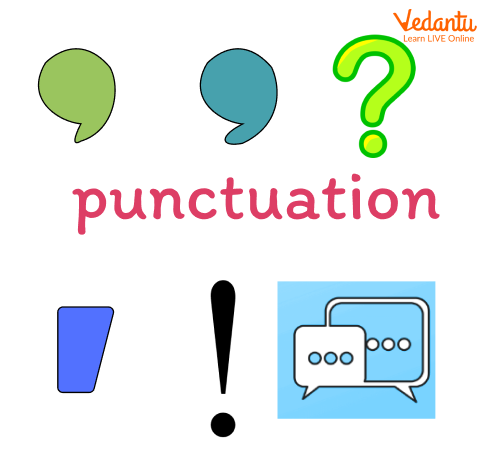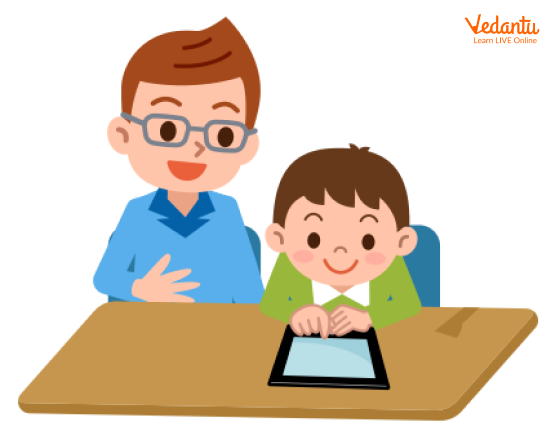




What Every Year 4 Student Needs to Know About Grammar
In Year 4, your child will be able to utilize all of the grammar and punctuation that they learned earlier in school in their writing, as well as several key features of grammar and punctuation. Read on to learn about the Year 4 National Curriculum expectations for grammar and punctuation, as well as how you can help your kid at home.
Let us know some of the tricks and activities you can perform for your kids to make them learn grammar and punctuation in year 4.
What Your Child Will Learn, Concerning Grammar & Punctuation, in Year 4?
Take a look at the National Curriculum's grammar and punctuation expectations for Year 4 (ages 8–9):
Having a working knowledge of the plural and possessive -s
For plural possession, apostrophes are used.
Using inflections from standard English verbs
Using modifying adjectives, nouns, and prepositional phrases to create noun phrases
Using adverbs with fronted adverbials
Organizing ideas with paragraphs
Nouns and pronouns that are appropriate
Inverted commas are used to punctuate speech.
How Do You Help Your Child at Home?
You may assist your Year 4 kid with grammar and punctuation in a variety of ways. Here are some of our best suggestions.

Punctuation for Kids
1. Read to your Child
Even though your child will most likely be able to read independently by now, reading aloud to them is still very important for their education, especially with books they can't read yet.
Listening to a story helps students improve their reading abilities, expand their vocabulary, and widen their general knowledge. It also aids in the development of your child's writing skills and knowledge of grammar and punctuation. While speaking and listening will teach children about language, the type of language we use in writing is typically different from that used in speech, so listening to text can model different patterns of language.
Look at how authors use different sentence kinds for effect when you're reading together:
Simple one-clause sentences (for example, 'Sam took up the spoon.')
'Give me the spoon, Sam!' is an example of a short command.
Compound sentences (e.g., 'Sam grabbed up the spoon, and she bolted away enthusiastically.')
Sentences with a subordinate clause (for example, 'Sam took up the spoon with great delight.')
Discuss numerous sorts of punctuation, such as question marks, exclamation marks, and commas, among other things. Is your child able to recognise ellipses? Look at how these are utilised to build tension or make the reader think.
2. Encourage Reading
Even if your child can read independently, taking the time to listen to them read can be quite beneficial. They will be able to see how punctuation and grammar are used to convey meaning if they see words in print regularly.
When you're reading, pay attention to the punctuation and discuss what it's urging the reader to do. You may demonstrate to your youngster how a question mark tells you to raise your voice at the end of a phrase to indicate that a question is being asked.

A parent, encouraging their child to read
Experiment with different ways to convey the 'felt' behind an exclamation mark. Are the characters yelling at each other? Is there something unusual that has happened? Is there a problem here?
3. Give Your Child Opportunities to Write
Writing at home can be a great method to improve your writing skills, including how to use language and punctuation to achieve specific effects. Here are some suggestions for encouraging frequent writing:
Make up a story about a space explorer who must investigate unusual planetary systems. Your child might create a new chapter about a different planet every week or month. Soon, the chapters will have come together to form a book they can be proud of.
Make an A-to-Z list. It might be based on whatever your child likes, such as animals, space, dinosaurs, fairies, or even their favourite television show. With a page for each letter of the alphabet, you'll have 26 short pieces of writing to complete over the course of the year, ending in one large project.
Make a younger child's version of a book. They could write The Rhino Who Came to Tea or The Very Hungry Angler Fish, for instance. This is ideal for books with a unique format, such as The Day the Crayons Quit or The Last Polar Bears.
Write the story for a film or television show. If your children have appreciated something they've seen, they could try to write a narrative about it. They can use the story as a frame for their own writing if they watch it on the screen.
While writing with a pen and pencil is beneficial, writing on a computer is also beneficial. To help children learn to confidently utilise their own knowledge, you might want to turn off the spelling and grammar check. Children may be perplexed by the fact that the grammar check may be incorrect.
4. Help Your Child Understand Important Grammatical Ideas
Activity papers and booklets can assist your child in mastering specific grammar and punctuation points. For more practical ideas, go through our grammar activity books.
5. Play Games
Playing games can be a fun method for kids to learn about language and punctuation. To see some simple and quick activities in action, check out videos like 'How to help my child with grammar, punctuation, and spelling?'
Summary
Grammar and punctuation lays out a logical progression of grammar, punctuation, and spelling skills for students to learn during their preparation. The students will learn how to write and punctuate sentences as well as a growing number of grammatical skills and punctuation throughout their time here.
It's best to link this into our reading by examining how authors employ these methods in their fiction and nonfiction writing.
FAQs on Year 4 Grammar: Master Core Skills and Rules
1. What is home learning and how does it help kids?
Keep a diary of what you are doing to pass the time while you are at home - this will be useful to look back on one day; also keep a food diary and attempt to learn where your food comes from while you are at home. Keep your time tables, basic knowledge, and reading skills up to date.
It helps the kids to be up-to-date on their subjects and activities and will learn the concept faster.
2. Give some worksheets that children can work on for their Year 4 Grammar and Punctuation?
The grade 4 grammar worksheets include more difficult topics such as parts of speech, verb tenses, and effective sentence construction. The need of correcting frequent mistakes (sentence fragments, run-on sentences, double negatives, and so on) is stressed.





















